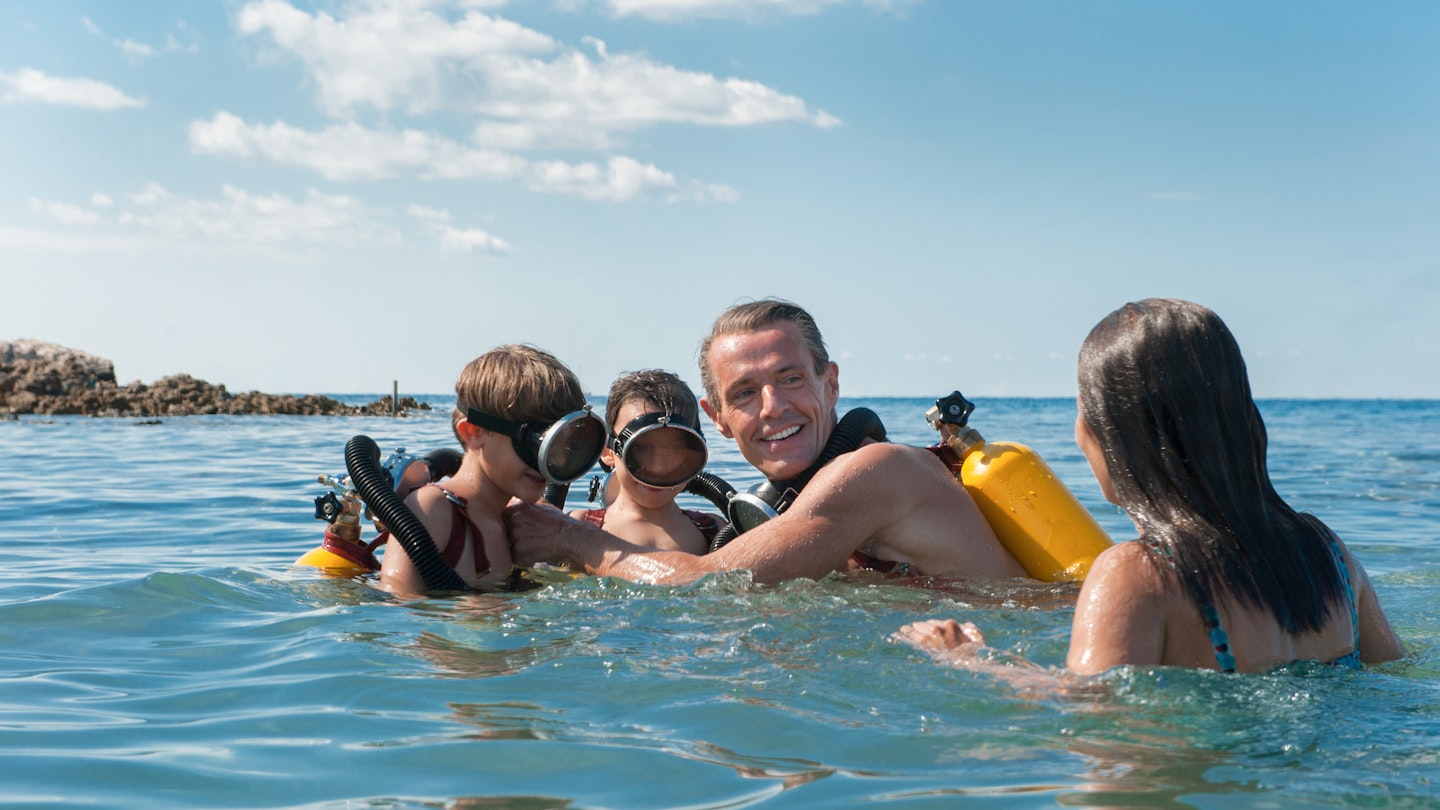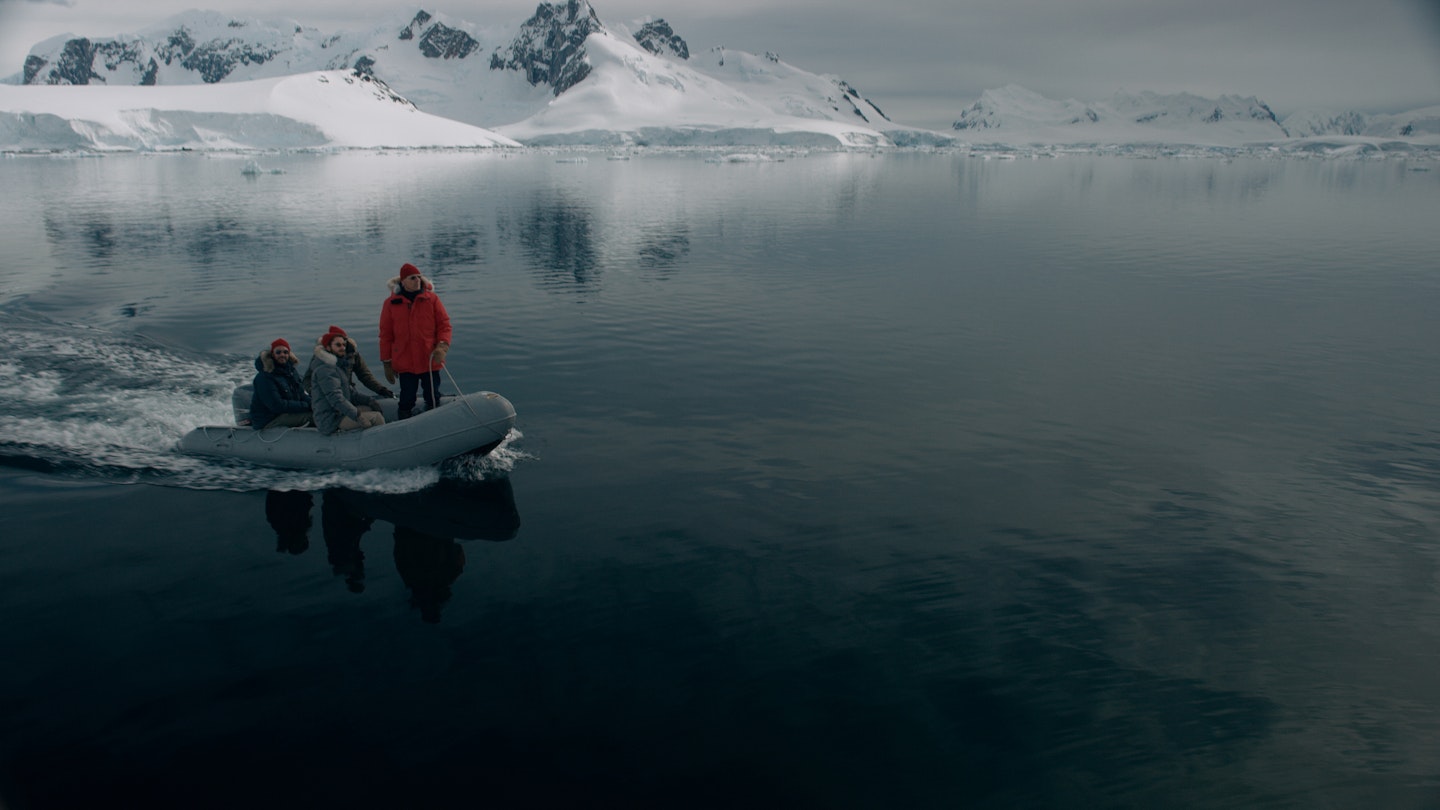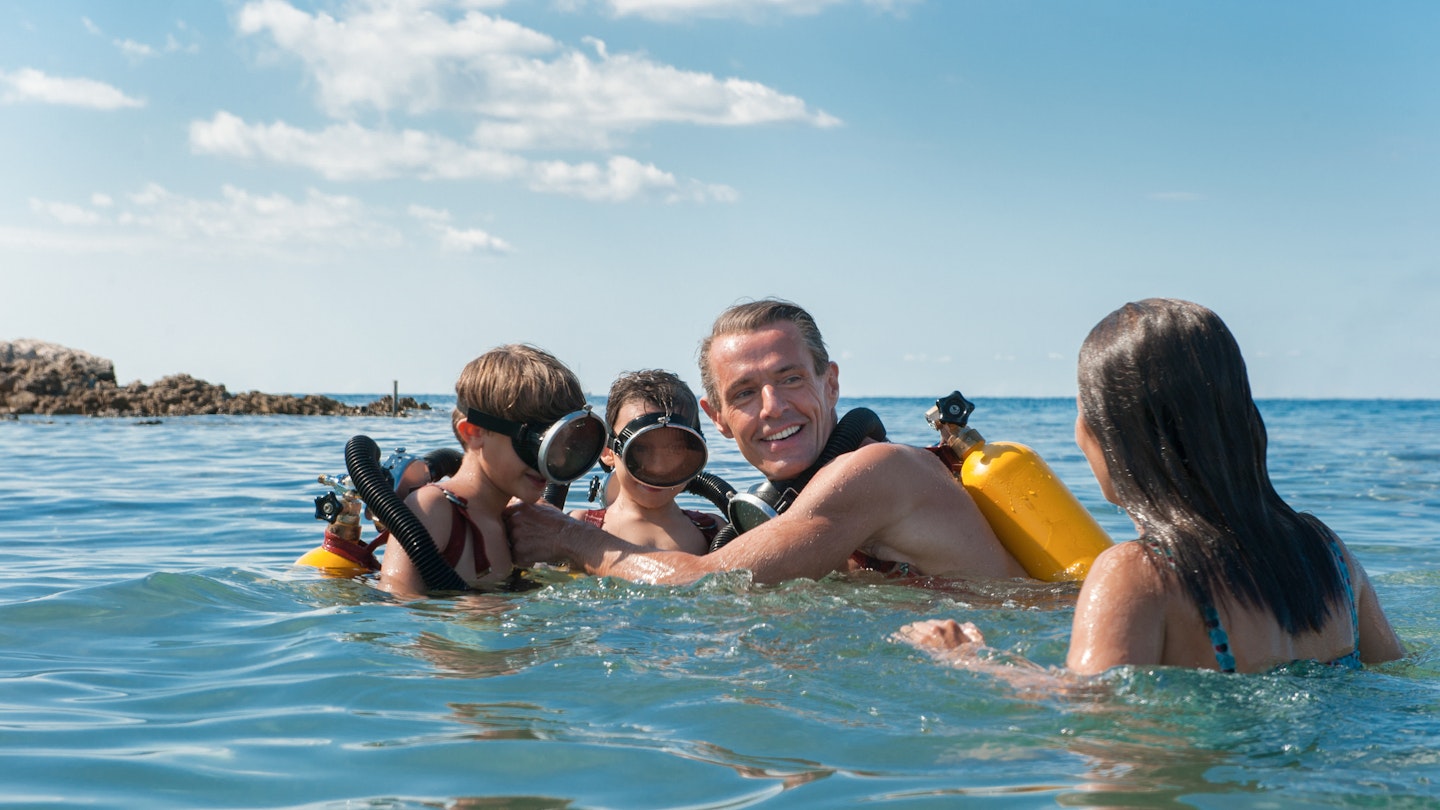Jacques-Yves Cousteau is the Gallic David Attenborough. In conjunction with Louis Malle, he became the first to win the Palme d'Or with a documentary and both The Silent World (1956) and World Without Sun (1964) received Oscars. Moreover, his adventures aboard The Calypso made The Undersea World Of Jacques Cousteau (1966-76) required TV viewing. But, while director Jérôme Salle does justice (albeit with some digital enhancement) to Cousteau's oceanographical legacy, he struggles to fathom the dramatic depths in chronicling his fractious relationships with first wife Simone Melchior and their second son, Philippe.

Despite boasting in the closing credits that he had conducted exhaustive research and interviewed several of Cousteau's key collaborators, Salle barely mentions his countless achievements in the fields of exploration, film-making, aqua-technology and conservation. Indeed, he uses a postcards-and-cuttings collage on a boarding school locker door to cover the period between 1949-63, during which time Cousteau published a bestselling book, won glittering film prizes, earned the respect of the marine community and sought to establish an underwater base with his Precontinent (aka Conshelf) habitats. Yet much of this fascinating material is skirted over, as is the fact that Cousteau was initially sponsored by British Petroleum, which gave him free fuel in return for collecting rock samples from potential offshore drilling sites.
Little is made of his determination to reconnoitre the oceans while the Americans ventured into space.
Little is also made of his determination to reconnoitre the oceans while the Americans ventured into space. Instead, Salle and co-scenarist Laurent Turner move things along through twee epiphanies that show a cash-strapped Cousteau hitting upon the idea of hooking up with a US tele-network after gazing from his window to see numerous TV sets illuminating the night sky, or deciding to go for broke with an expedition to Antarctica after a shelf collapses aboard The Calypso and he remembers the bold ambitions he had entertained while reading 20,000 Leagues Under The Sea to his young sons. Philippe also realises that he needs to switch from exploration to conservation after he sees the cook casually toss a bucketful of waste over the side.
Yet, considering Cousteau's celebrity status, his frequent infidelities, his financial crises and the simmering tensions with Philippe, there are surprisingly few moments of real dramatic intensity. Simone gets to thump his chest after finding a love letter in a jacket pocket, while Philippe curses having such a rotten father in a New York diner and Jean-Michel urges him to keep living after the tragedy that's flagged up in the opening scene. But Cousteau himself is too busy sipping champagne, signing autographs and raising funds for his next project to notice that he has taken the wrong turn and it's only when he surveys the sunlight on the polar snow that he realises he has fallen victim to “the dictatorship of materialism” and should have been conserving rather than conquering.

This meanderingly episodic approach is doubly exasperating because so many other aspects of the picture are impressive. Laurent Ott's production design has an authentic feel, although it's overshadowed by Matias Bouchard's terrestrial cinematography and Peter Zuccarini's outstanding underwater visuals. That said, the CGI spoils the shark attack sequence, while the usually discreet Alexandre Desplat's score is far too ubiquitous. Moreover, while Lambert Wilson, Pierre Niney and Audrey Tautou impart some much-needed sincerity to the sketchy characterisation, most will find themselves having to resort to the Internet to fill in the many biographical gaps.


